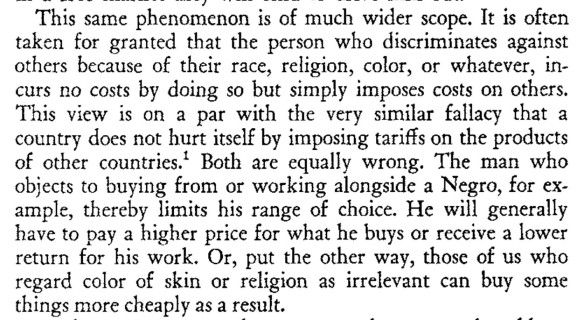Black Lives Matter: one of the largest civil rights movement since the 1960s
- SupplyYourDemand

- Jun 8, 2020
- 3 min read
Updated: Sep 21, 2020
No doubt the global mass demonstrations in protest of the brutal killing of George Floyd by US police officer Derek Chauvin, been a testimony to the decades of inequality, and ignorance to racism in our societies.
It is in light of this that we explore the racial discrimination present in the labour market today and dive into possible means of reform. In our blog, we will define racial discrimination in the labour market as the unequal treatment of equally productive individuals only because they belong to a specific group (1)

D=MRP shows Marginal Revenue Product of workers.
The 'perceived' MRP of people of colour is lower than it actually is due to the discrimination within employment. These groups are forced to receive a lower wage of W2 rather than the deserved wage at W1.
Workers from ethnic minorities have to search 40-50% longer than individuals having the same characteristics but belonging to majority groups before they receive a job offer (1) By spending more time searching for a job, these workers are more vulnerable to the risk of long-term unemployment. Average wage of minority groups is lower than the national average wage, placing them in the lowest quartile of the population. The households most likely to have a weekly income of less than £400 were from Mixed and Black ethnic groups, at 32% and 35% respectively. (3) They have less disposable income and most are likely to claim unemployment benefits, placing a cost to the government and increasing government budget deficit and debt. Due to the low disposable income, these workers are more likely to fall into poverty, or relative poverty and these families are likely to relocate themselves in a more price-suitable location. This may be in areas where the population is low and the quality and quantity of services is low, as this is where demand is low making prices low. This may result in a low quality of life. Because their kids are growing up in a more secluded area, some may say that their educational and job opportunities are low. This sets off the spiral of decline, where it becomes hard for the kids to escape poverty. These minority groups are the most vulnerable in our economy and by turning them away because of their race is not only unjust towards them, but also costing our economy in taxes and loss in future production.

Milton Friedman's 'Capitalism and Freedom'. Firms do not benefit, but are rather disadvantaged from discriminating against a certain group. (4)
A firm who discriminates against ethnic minorities is penalising itself because wages for white workers would increase (increasing costs of production). (2) New firms entering the market would be more competitive by employing lower waged ethnic minorities, thus undercutting their rivals. Market forces put pressure on discriminatory employers to cut wages and employ all workers. In theory, it should put downward pressure on wages for white workers.
Some solutions that are in place include government regulations like The Race Regulations Act (1976) which states that it is unlawful to discriminate in recruitment or employment on racial grounds defined as: race or colour, nationality, ethnic or national origins.
Also, there is a quota stating that a fixed percentage of people of colour must be recruited in the workplace.
Finally, you and me can be anti-racist and prevent casual racism so that we eliminate all preconceived judgement.
Overall, we believe that racial discrimination is unacceptable and that it has detrimental impacts on both people and the economy. Having stricter regulations like quotas means that there will more likely be equality in labour markets. However, adopting a more free-market approach ensures markets stay competitive and that the most productive workers are employed, thus moving the economy to a more efficient future with the possibility of economies of scale. All solutions require a conscious effort by society to drive anti-racism and only by doing that will we achieve a fully functioning economy.
Co-authored by Priscilla Chau and Sarita Kumari
(2) Gary Becker The Economics of Discrimination (1955)
(3) https://www.ethnicity-facts-figures.service.gov.uk/work-pay-and-benefits/pay-and-income/household-income/latest

Comments